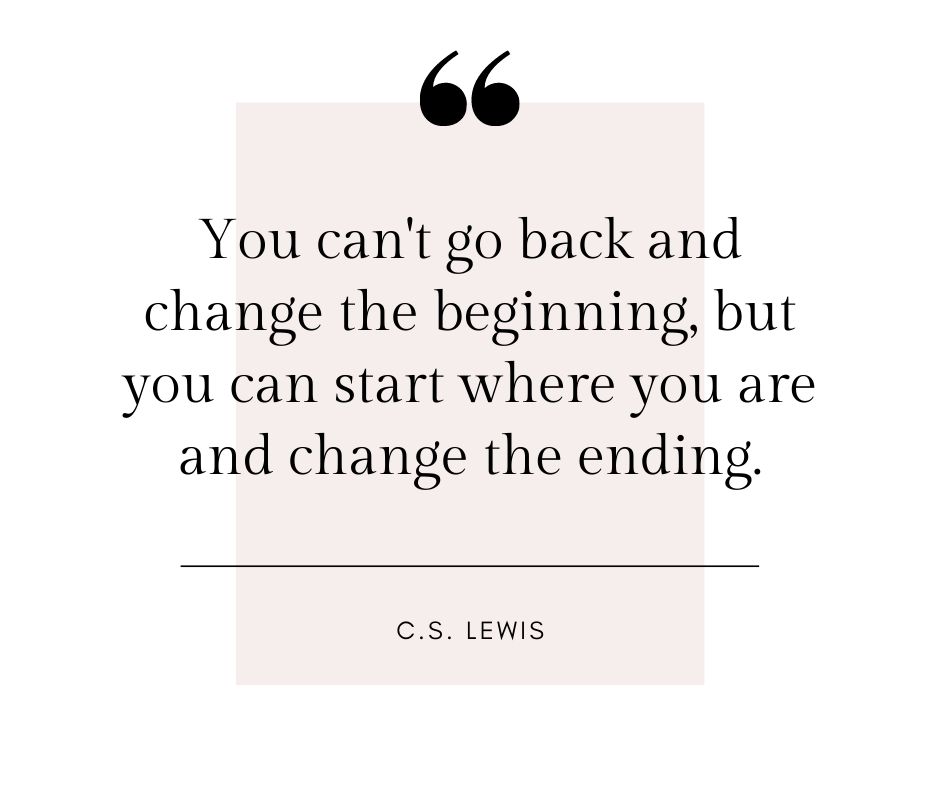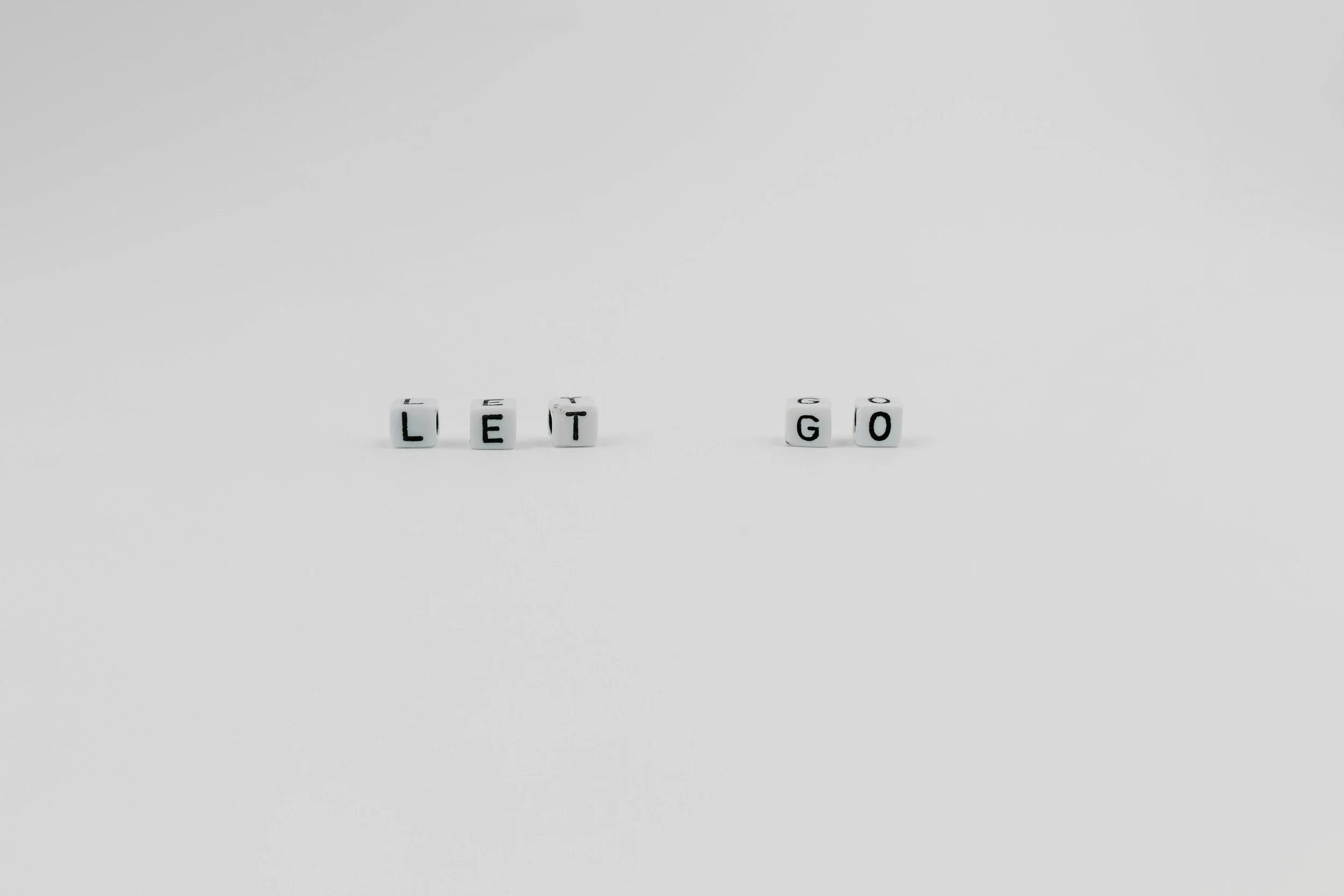The Art of Letting Go: Why Closure Matters ✨
Closure is a universal aspect of the human experience. It marks the end of one chapter and the beginning of another, allowing us to let go of the past and create space for growth. Whether it’s the end of a relationship, the completion of a project, or simply the closing of a year, closure is essential to our emotional and mental wellbeing.
But closure isn’t always easy, and it doesn’t come neatly packaged with all the answers we might hope for. To be human is to seek closure, and in doing so, to seek meaning and resolution in life’s many transitions.
What Is Closure?
Closure can be defined as the sense of emotional resolution or completion we feel when something significant comes to an end. It’s not about forgetting or erasing the past but about integrating those experiences into our lives in a way that allows us to move forward. Closure provides a sense of peace and clarity, even in the face of unanswered questions or unresolved issues. It’s less about the ending itself and more about how we process it.
Why Closure Matters
Closure matters because it helps us make sense of our experiences, process emotions, and grow. Without closure, we may carry unresolved feelings, regrets, or questions that weigh us down and hinder our ability to embrace new opportunities. Closure is about finding a balance between holding onto the lessons of the past and releasing the emotional weight that can keep us stuck.
💡 To keep close: Closure is less about endings and more about finding balance and alignment with them.
The Challenges of Finding Closure
1. Unanswered Questions
Not all situations offer clear explanations. Relationships may end without understanding why, opportunities may be lost without closure, and life can feel incomplete when we don’t have all the pieces of the puzzle.
2. Attachment and Resistance
Letting go can feel like losing a part of ourselves. We often resist closure because holding on—even to pain—feels safer than stepping into the unknown.
3. Unfinished Business
Lingering regrets or unresolved conflicts can make closure difficult. These open loops in our minds can lead to ruminating, keeping us tethered to the past.
📌 Reflection Moment: What situations in your life feel "open"? How does that impact your emotional or mental state?
How to Navigate Closure in Different Areas of Life
1. Closure in Relationships 💔
Relationships, whether romantic, familial, or platonic, often require closure to heal and move forward. How could that look like for you?
Honest conversations to express feelings and seek understanding.
Setting clear boundaries to protect emotional wellbeing.
Writing a letter to say the things left unsaid, even if it’s never sent.
Practicing forgiveness—for yourself or the other person.
2. Closure at Work or in Projects 📂
Transitions in work or creative projects can leave us feeling unsettled if we don’t take the time to reflect. What could help you close these chapters?
Celebrate successes and acknowledge your achievements.
Reflect on lessons learned from challenges or setbacks.
Express gratitude to collaborators or mentors who supported you along the way.
3. Closure at the End of the Year 🎉
The close of a year is a natural time to seek closure, reflect, and prepare for the next one. Here are some ideas:
Reflect on accomplishments and challenges.
Write a gratitude list to honor the positive moments.
Create a "letting go" ritual, such as releasing old commitments or writing down what you want to leave behind.
💡 To keep close: Every ending is an opportunity for reflection and a gateway to new beginnings.
How to Foster Closure in Your Life 🖤
1. Acceptance over Answers
Closure doesn’t always mean having all the answers. Sometimes, it’s about accepting that certain things may remain unresolved and choosing to move forward anyway. Psychologically, this is tied to the concept of radical acceptance—acknowledging reality as it is, without resistance or denial, even if it’s painful.
➡️ Example: Consider the end of a friendship where the reasons for the fallout remain unclear. Instead of dwelling on "what ifs," practice reframing your thoughts. Focus on the value that friendship once brought to your life and the lessons you’ve gained, rather than the uncertainty of its end.
Takeaway: You may never have all the answers, but you can choose to let go by accepting the reality you face today. Acceptance isn’t defeat—it’s empowerment.
2. Rituals for Closure
Rituals can help mark transitions and bring a sense of resolution. They provide a tangible, symbolic way to process endings, which is particularly helpful when closure feels abstract.
Write a goodbye letter to the past: Acknowledge your emotions, express gratitude for the lessons, and articulate your hopes for the future.
Bury or discard symbolic items: Letting go of something tied to a painful memory—like shredding a journal entry or donating an item—can be a cathartic release.
Walk through a meaningful place: Revisit a location tied to the experience to consciously reflect on what it meant and how you’ve grown.
Create a timeline or scrapbook: Document key moments and lessons from the experience, framing it as a chapter in your personal story.
➡️ Example: After leaving a long-term job, you could create a list of key achievements and lessons learned. Take time to write thank-you notes to colleagues or mentors who supported your journey. End the ritual by creating a career vision board, focusing on goals and aspirations for your next chapter.
Takeaway: Rituals are small yet powerful acts that help translate complex emotions into actions, making closure feel more attainable.
3. Gratitude and Forgiveness
Gratitude allows us to honor the experience, while forgiveness—whether for ourselves or others—helps release lingering emotions. Together, they pave the way for healing by lightening emotional burdens and fostering compassion.
💡 Psychological Insight: Research on forgiveness shows it can reduce stress, improve relationships, and even enhance physical health. Gratitude rewires the brain to focus on positive aspects of life, creating a foundation for resilience.
➡️ Example: If you’ve faced a betrayal, forgiving the other person doesn’t mean condoning their actions—it’s about freeing yourself from the grip of resentment. Gratitude for the strength you’ve developed during the process can deepen this healing.
Takeaway: Forgiveness and gratitude are acts of self-compassion. They’re not about letting others off the hook but about giving yourself the freedom to move forward.
4. Leaning into Support
Closure is often easier with support. Trusted loved ones can provide perspective and encouragement when the journey feels overwhelming. Sharing your thoughts aloud can help clarify emotions and validate your feelings, which is essential for healing.
💡 Psychological Insight: Humans are wired for connection. Studies show that social support mitigates the effects of stress and helps us process complex emotions more effectively.
➡️ Example: If you’re grieving a breakup, leaning on a close friend who’s a good listener can be a lifeline. Sometimes, just saying how you feel—without judgment—can help lighten the load. Joining a support group or speaking to a psychologist can offer tools for moving forward. Hearing stories from others who’ve been through similar situations reminds you that you’re not alone and that healing is possible.
Takeaway: Don’t underestimate the power of community or professional guidance. Sharing your experience can make the path to closure feel less isolating and more manageable.
📌 Reflection Moment
What could you let go of today to make room for something new tomorrow?
Letting go doesn’t mean forgetting—it means releasing what no longer serves you, so you can embrace the possibilities ahead.
A Closing Thought 💬
Closure is an act of self-compassion and courage!
It’s not just an ending but a vital part of the growth cycle. By seeking closure, we honor what was and make space for what’s to come. Remember, closure takes time and is rarely linear, but every small step toward resolution is meaningful. 🌱
Let’s Talk
Are you interested in exploring how you can practice closure in your life, relationships and work? Are you ready to start the coaching process? Get in touch—we can discuss your needs and goals and find ways to personalize this process so you can get the most out of it.



